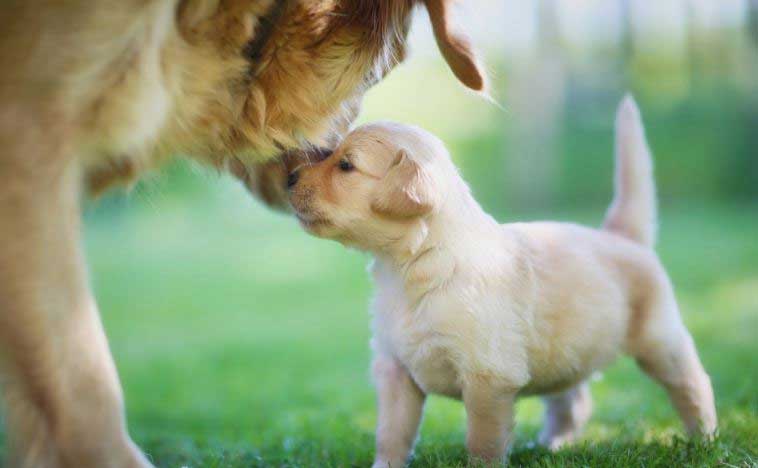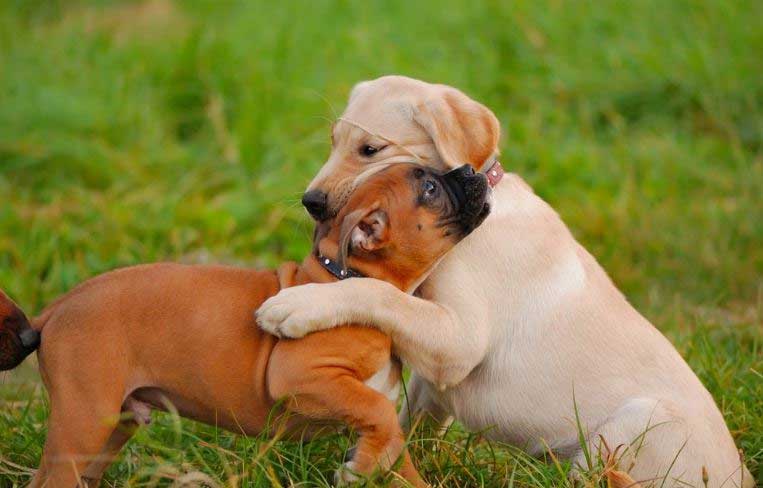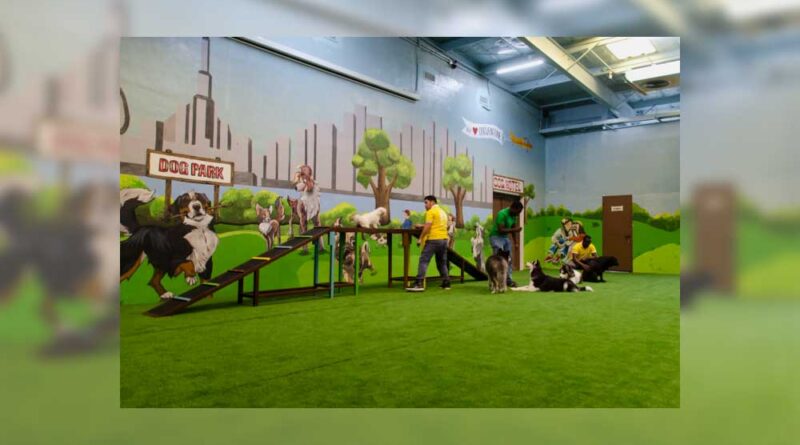Puppy socialization classes, help your dog thrive in any environment
Raising a puppy involves fostering their social skills and confidence to navigate various environments. Puppy socialization classes provide a structured setting for young dogs to learn and play with others.
The content on this page is just a guest post and is prepared by someone else. Techdic does not assume any responsibility for this article, the content of the pages that are linked in this article, or the services related to them. We do not approve or reject them.
These classes expose puppies to diverse experiences, introducing them to new people, sights, sounds, and interactions with other dogs. This crucial dog training services in Dubai not only builds essential socialization skills but also strengthens a puppy’s resilience and adaptability, preparing them for the complexities of the world.
The Importance of Puppy Socialization
During a critical socialization period 3 and 14 weeks of age, puppies possess a heightened receptivity to new experiences. This period, known as the socialization period, offers a unique opportunity to shape their future behavior.
By introducing them to a variety of people, animals, sounds, and environments, we can cultivate positive associations and equip them with valuable coping mechanisms. This early exposure significantly reduces the chances of fearfulness, aggression, and anxiety developing in life.
Socialized puppies demonstrate greater adaptability and resilience in new situations, ultimately leading to well-rounded adult dogs who can thrive in any environment.
According to research ” A study of 296 puppy owners in North America found that nearly one-third of these puppies had limited exposure to people and dogs outside the home. The study assessed the level of interaction of puppies with the external environment by distributing questionnaires at the time of owner registration in the study and again at 20 weeks of age of the puppies. The findings indicate that a significant number of puppies had limited experiences interacting with strangers and dogs, which could have implications for their future behavior and adjustment.”
Why is Importance of the 3-14 Week Period for Puppies?
Between 3 and 14 weeks of age, puppies go through a critical period of development known as the “socialization period”. During this time, their brains are rapidly developing and they are learning how to interact with the world around them.
The choice of 3-14 weeks as the critical period is based on a number of scientific studies that have shown that puppies are significantly more responsive to new experiences during this time and are more likely to bond with new people and animals.
Research has shown that puppies that are not adequately socialized during this period are more likely to have behavioral problems such as fear, anxiety, and aggression as adults.
Socialization should not be confused with training. Socialization is about helping puppies learn to feel comfortable and safe around different things, while training is about teaching them specific behaviors.

Creating Confidence and Benefits of Socialization Classes
Socialization classes offer a foundation for well-adjusted canine companions through a meticulously crafted curriculum. Puppies encounter a diverse array of stimuli in a controlled setting, fostering positive associations with new people, animals, and environments.
By participating in structured activities and positive reinforcement exercises, puppies build trust in their owners and gain the confidence to navigate unfamiliar situations. Interaction with classmates teaches essential social skills like appropriate play behavior, communication, and canine body language, promoting healthy interactions throughout their lives.
Furthermore, gradual exposure to potentially frightening stimuli reduces fear and anxiety, preventing the development of phobias in adulthood. Socialization classes can even enhance problem-solving abilities through activities that challenge puppies to think critically and overcome obstacles. Ultimately, this supportive environment, guided by experienced trainers, empowers puppies to learn and grow at their own pace.
What Puppy Socialization Entails?
Socialization encompasses introductions to different people, animals, environments, sights, sounds, and smells. These introductions should be gradual and positive, using rewards and careful supervision to create a foundation for a well-adjusted adult dog. It’s important to remember that socialization is an ongoing process, and tailoring the approach to each puppy’s individual needs is crucial for success.
Safe and Structured Learning Environments
Fostering effective puppy development necessitates a meticulously designed and secure learning environment. This environment prioritizes safety by eliminating hazards and ensuring proper supervision during interactions with other animals and people.
Experienced trainers oversee these structured settings, guaranteeing positive interactions and focused training. Consistency in training methods and expectations is paramount, as puppies flourish when cues and reinforcement are predictable. Structured environments also provide controlled opportunities for crucial social development with other dogs and humans, fostering appropriate social skills within a safe and supportive atmosphere.
By employing positive reinforcement techniques, these environments create a motivational learning experience that encourages desired behaviors and discourages unwanted ones. Finally, structured environments allow for a gradual introduction of new experiences and challenges, ensuring each puppy progresses at a comfortable pace that fosters confidence and growth.
Effective Socialization Techniques for Puppies
During a critical developmental period, puppies benefit greatly from positive and controlled exposure to a variety of stimuli. This acclimatization process should be gradual, allowing them to adapt to new experiences at their own pace. Positive reinforcement through treats, praise, and play is instrumental in creating positive associations with these novelties.
If anxieties arise towards specific stimuli, desensitization techniques can be employed to gradually increase their comfort level. Furthermore, pairing unfamiliar encounters with positive experiences fosters a sense of security. Structured socialization classes and supervised play sessions offer valuable opportunities for puppies to develop appropriate social skills and communication techniques with fellow canines, ultimately shaping them into well-adjusted and confident adult dogs.

puppy training program dogventurehq
This puppy training program Dogventurehq in Dubai hills down town offers a comprehensive solution for new puppy owners. During the critical socialization period 3 and 14 weeks, puppies learn to interact appropriately with other dogs through supervised play sessions. Trainers guide both puppies and owners, addressing common behavioral issues like biting and excessive barking.
Group training classes then focus on obedience commands and tackling challenges like leash walking and unwanted behaviors. The program emphasizes personalized attention, adapting to each puppy’s needs and offering clear explanations for successful training. With a focus on building a strong relationship and effective communication, this program aims to empower owners to raise well-mannered and confident canine companions.
Conclusion
Puppy socialization classes provide a safe and controlled environment for puppies to encounter a variety of experiences, including interactions with other dogs, humans, and novel stimuli. This exposure fosters the development of crucial social skills, resilience, and confidence, enabling puppies to navigate their world with ease.
The benefits extend far beyond the classroom, shaping a dog’s behavior, temperament, and overall happiness. By investing in puppy socialization classes, owners not only equip their dogs with the tools to thrive but also strengthen the bond built on trust, understanding, and shared experiences.

